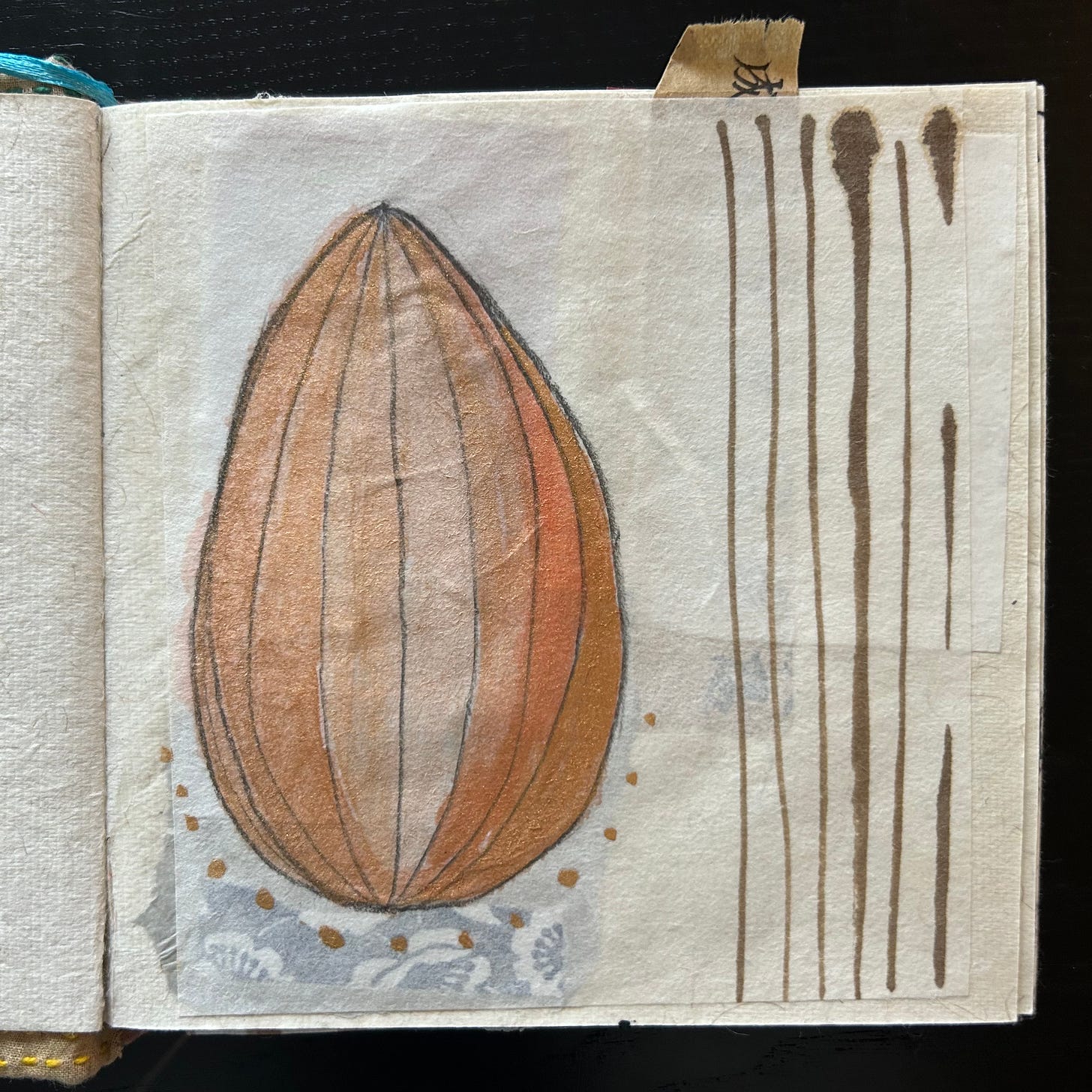The next seven generations, and our mother Earth can get lost in this instant gratification celebration. The seven generations ahead of us, and behind us can’t be forgotten or we run the risk of forgetting where we came from. And when you forget “where” you come from, you are for sure to forget who you are.
RARIN “GREY FOX” QUALLS, BEATTY TRUST (CIRCLES)
We leave our mark on every surface; the glances we throw, the words written on bathroom walls, the paint that clumps and glides across the surface of a painting. I read this week that microplastics, those invisible fibers that float through our water and breakdown when warming food in the microwave, leave their mark in our brains. Mark making is poetry, it is pollutant. It has become impossible to leave no trace — the cloud of our humanity follows us through every doorway. The mark we make is permanent. It is overwhelming to consider every gesture, every interaction, and so, we exert our influence in ways that fit the moment. And when we misstep, we try to make amends.
Our humanity has come to rely on mark making to move forward culture through rituals and ceremony. Ceremonies mark time, they connect us to place and the animal calendar of seasons. Ceremony nourishes our tribe, we adapt as does the ceremony to ensure survival for the next generation. During this week’s workshop, Alex shared a free write about his Ukrainian grandmother’s borscht, a recipe his mother now makes. I see those dark-hued beets, a rooted vegetable imbued with the taste of the soil — the soil that is currently under siege. This recipe, transplanted from his ancestral homeland has been forever modified by Oregon’s earth, the seasoning of his mother’s hand. My mouth watered as I described my friend KK’s beet soup that blends the sweetness of beets with smokey chipotle chiles en adobo, deepening the flavor to meet her New Mexican palette. Creative and exuberant, KK makes ceremony with every meal she serves. Adaptation breathes life into her recipes. And like grandmother’s borscht, now made in Oregon, cultural memory lives in new expression.
We have gathered writing by three Oregon State Penitentiary writers this week. Each of these men are accountable for their actions, recognize their responsibility, and accept guidance from spirit.
Le’Var Howard’s Don’t Deny the Day
Too often people refuse to acknowledge the world around them and the fact that this space in air and time is theirs. Ours to claim, to own, and to hold responsibly.
Jai’s, Rocks in A Box
I've got quite a few things in this box
I carry it with me even though it gets heavy
There are boxes within my box, which are
More than just sacred, the holiest of holies
Rarin “Grey Fox” Qualls, Beatty Trust (Circles)
Discovering myself came in a time when my shattered spirit clung to any light available. As I teetered on the abyss of insanity (during this time of captivity) letting it become the end of me was not an option. Broken by man’s laws, sure. Still neither confinement nor this “whitewashed mentality” of punishment and greed could destroy this Indian Heart that resides deep within me. Many Elders along this journey have contributed to my awareness. I’m the image of what they’ve left behind, mixed with everything I’ve experienced along my own walk in life.
We spent nearly five months of our cellular lives inside our Grandmother’s womb — the science and the poetry of existence! Borrowing Jai’s phrase, this is “the holiest of holies,” our cellular knowledge is woven deeply into our self-identity. Let’s cast back to Rarin’s understanding of ceremony. It is his responsibility as a knowledge holder to carry the tradition, to educate, to serve.
What ceremony have you adapted to meet the moment of today? | TDS


